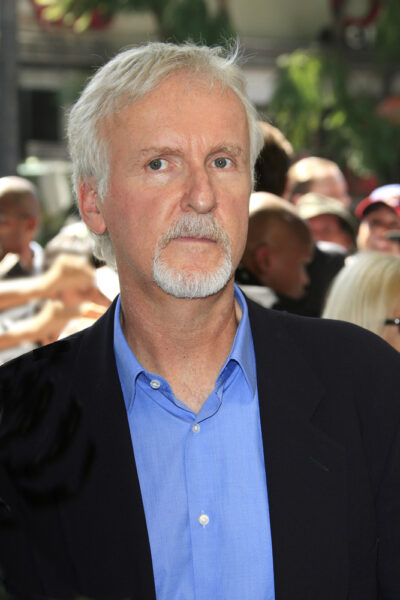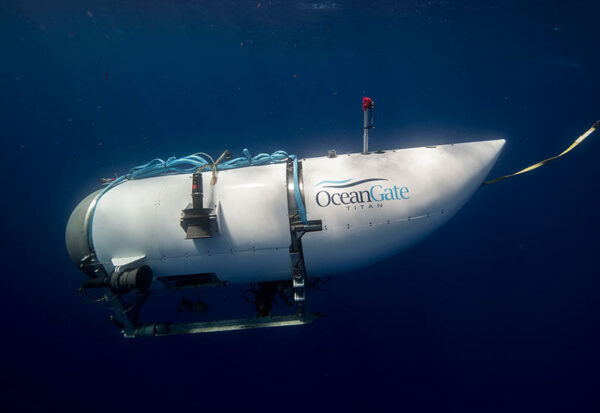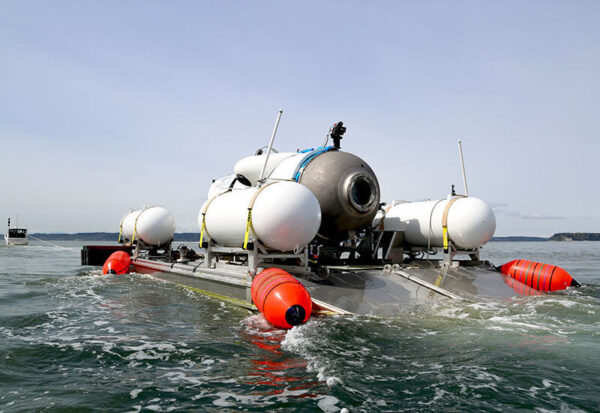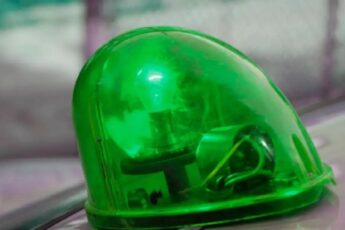In recent days, the world has been captivated by the unfolding saga of the OceanGate Titan, a submersible that disappeared on Sunday during its mission to observe the remains of the Titanic. The discovery of wreckage from the vehicle occurred two days ago, and it was evident that a devastating implosion had occurred, claiming the lives of all five passengers on board.
Given the magnitude of this tragedy, numerous experts have shared their perspectives, but few individuals possess the profound understanding of the thrills and dangers associated with deep-sea exploration like James Cameron, the renowned director who won an Oscar for his film Titanic in 1997.
Cameron, an ardent ocean explorer who has embarked on 33 expeditions to witness the wreckage of the Titanic, has now decided to shed light on his emotions regarding this calamity, as well as unveil the reasons why he himself would not have chosen to board the ill-fated Titan.

If you’re familiar with James Cameron’s films, you’ll recognize his deep fascination with cutting-edge technologies and his ability to transport audiences to unexplored realms, be it outer space or the unfathomable depths of the ocean. This fascination stems from Cameron’s own adventurous spirit in real life.
In a 2011 interview with the New York Times, Cameron revealed, “As a child, I was enamored with both ocean exploration and space. There’s no greater fantasy for me than being an explorer, witnessing the unseen through human eyes.”
Cameron has carved out an impressive career as an explorer, achieving significant milestones. In 2012, he achieved the remarkable feat of becoming the first person to embark on a solo descent to the depths of the Mariana Trench. Over the course of his career, he has undertaken more than 70 submersible dives, including 33 expeditions to the sunken wreck of the Titanic resting on the ocean floor.
Consequently, the crisis surrounding the OceanGate Titan, as it set out to observe the Titanic wreck, undoubtedly struck a personal chord with Cameron. However, he expressed apprehension regarding the safety of the Titan submersible and accused OceanGate of compromising safety measures by cutting corners.

In an interview with the BBC, Cameron expressed his skepticism regarding the technology employed by OceanGate, stating firmly, “I had serious doubts about the submersible they were using. Personally, I would not have stepped foot in that sub.” He further contended that OceanGate chose not to seek certification because they were aware that they would not meet the necessary standards.
Cameron did not mince his words when speaking to Reuters, stating that OceanGate should not have been engaging in the activities it pursued. He admitted that he regretted not voicing his concerns more emphatically from the outset, acknowledging, “I was not aware that they lacked certification because I hadn’t been closely following their operations.”
The acclaimed filmmaker disclosed that Stockton Rush, the CEO of OceanGate and one of the victims of the sub’s implosion, had invited him to join a dive this year. However, Cameron declined the offer, asserting, “I had no interest in participating. There were widespread concerns surrounding this organization and their submersible.”
Cameron, who has designed his own submersible vehicles, raised reservations about OceanGate’s decision to use carbon fiber as a construction material, deeming it “fundamentally flawed.” Despite his concerns, Stockton Rush defended the choice, as reported by ABC News.
Knew it was an implosion

When news broke of the Titan’s disappearance on Sunday, James Cameron had a grim intuition about the fate of the submersible. Drawing upon his connections within the deep submergence community, Cameron engaged in discussions that led him to suspect the sub had suffered a catastrophic implosion. While the world anxiously awaited further updates and clung to hope, Cameron was already aware that the five individuals aboard the Titan had tragically lost their lives.
In an interview with CNN, Cameron shared his thought process, stating, “The only scenario I could envision that would account for this was an implosion… a shockwave event of such magnitude that it would incapacitate a secondary system equipped with its own pressure vessel and battery power supply.”
Taking further action, Cameron reached out to his network, procuring intelligence that likely originated from military or research sources. The information he received confirmed the presence of a distinct loud noise consistent with an implosion event, solidifying his suspicions.
With this corroborating evidence, Cameron felt compelled to inform his inner circle about the loss of their comrades. He encouraged everyone to honor the memory of those who perished by raising a glass in their honor on the following Monday, marking a solemn tribute to their lives.
Compares disaster to Titanic

Yesterday, the Coast Guard confirmed James Cameron’s suspicions when they announced that the discovered debris was indeed indicative of a “catastrophic loss” of the submersible’s pressure chamber, leading to the tragic loss of all five lives on board.
Remarkably, this debris was found in close proximity to the Titanic wreckage, prompting Cameron to draw striking parallels between these two maritime disasters. He highlighted the unsettling resemblance in both cases, where cautionary warnings were disregarded, leading to devastating consequences.
Speaking to ABC News, Cameron reflected on the Titanic disaster, noting, “I’m struck by the similarity of the Titanic disaster itself, where the captain was repeatedly warned about the presence of ice ahead, yet he chose to navigate at full speed into an ice field on a moonless night. Numerous lives were lost as a result. It’s a profoundly tragic occurrence, and to witness a comparable tragedy unfold at the very same location, where warnings went unheeded, is deeply disheartening.”
Given James Cameron’s expertise in undersea exploration, his perspective on the recent events holds great significance.
As we continue to extend our thoughts and support to the victims and their loved ones, it is important to share this story to raise awareness and foster dialogue about the importance of safety in maritime ventures.






